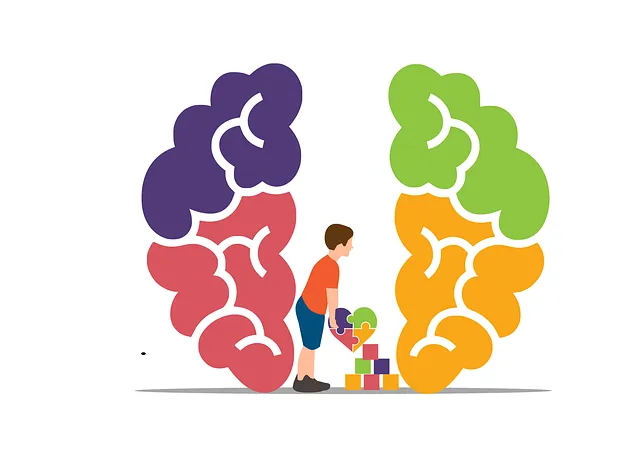Mental health policies, guided by organizations like the Centennial Kaiser Permanente (CKP) mental health center, are crucial frameworks for delivering and accessing emotional healing services. CKP's reviews highlight successful initiatives and areas for improvement, offering insights to policymakers aiming to create inclusive, evidence-based environments for depression prevention. Advocacy, proven effective through campaigns leading to CKP centers' establishment, amplifies the voices of individuals with lived experiences, pushing for improved funding, services, and practices. The center's innovative services, positive reviews, and emphasis on holistic wellness through therapy, counseling, and community outreach programs further underscore its dedication to mental health.
Mental health policy analysis and advocacy are vital components in shaping accessible and effective healthcare systems. This article provides a comprehensive overview of these critical aspects, focusing on the intricate relationship between policy, advocacy, and mental healthcare. We explore the impact of advocacy in improving access to services, using the Centennial Kaiser Permanente Mental Health Center as a case study. Through analyzing its reviews, we gain insights into best practices and identify areas for improvement, underscoring the importance of policy-driven change in modern mental healthcare.
- Understanding Mental Health Policy: A Comprehensive Overview
- The Role of Advocacy in Shaping Mental Healthcare Access
- Centennial Kaiser Permanente Mental Health Center: A Case Study and Reviews Analysis
Understanding Mental Health Policy: A Comprehensive Overview

Mental health policies are essential frameworks that guide the delivery and accessibility of services aimed at fostering emotional healing processes and preventing conditions such as depression. These policies, often shaped by healthcare organizations like the Centennial Kaiser Permanente mental health center, play a pivotal role in ensuring quality care. The Centennial Kaiser Permanente mental health center reviews highlight successful initiatives and areas for improvement, offering valuable insights to policymakers.
A comprehensive understanding of mental health policy involves recognizing the interplay between legislation, clinical practice guidelines, and cultural sensitivity in mental healthcare. By integrating evidence-based practices and addressing disparities in access to care, these policies aim to create a supportive environment that promotes recovery and well-being. Cultural sensitivity, for instance, is crucial in tailoring interventions to meet diverse needs, ensuring effective Depression Prevention strategies resonate with various communities.
The Role of Advocacy in Shaping Mental Healthcare Access

Advocacy plays a pivotal role in shaping mental healthcare access and quality. It amplifies the voices of individuals with lived experiences, ensuring their needs and perspectives are integrated into policy decisions. Through advocacy, communities can push for increased funding, improved services, and more inclusive practices within mental health care systems. This is evident in successful campaigns that led to the establishment of Centennial Kaiser Permanente mental health centers, which offer a range of services catering to diverse populations.
Centennial Kaiser Permanente mental health center reviews highlight the positive impact of advocacy in action. These reviews, shared by individuals who have benefited from the centers’ services, underscore the importance of accessible and culturally competent healthcare. By advocating for better resources, training initiatives like Cultural Competency Training for healthcare providers can be implemented to enhance patient care. Additionally, programs focused on Coping Skills Development and Conflict Resolution Techniques empower individuals to manage their mental health effectively while fostering supportive communities.
Centennial Kaiser Permanente Mental Health Center: A Case Study and Reviews Analysis

The Centennial Kaiser Permanente Mental Health Center stands as a beacon of hope and comprehensive care within the healthcare landscape. This institution has garnered significant attention through its innovative approaches to mental health services, earning numerous Centennial Kaiser Permanente mental health center reviews that underscore its effectiveness. The center’s dedication to emotional well-being promotion techniques includes a multifaceted approach that combines therapy, counseling, and community outreach programs. By integrating these strategies, the center aims to not only treat but also prevent mental health disorders, fostering a more resilient and mentally healthy population.
Beyond routine care, Centennial Kaiser Permanente excels in crisis intervention guidance, providing timely and efficient support during emergency situations. Their adept handling of crises has significantly reduced recovery times and improved patient outcomes, as evidenced by numerous positive Centennial Kaiser Permanente mental health center reviews. This focus on crisis management underscores the center’s commitment to holistic mental wellness, ensuring that individuals receive the necessary tools and resources to navigate life’s challenges with greater resilience.
Mental health policy analysis and advocacy play a pivotal role in shaping accessible and effective healthcare systems. By understanding the intricate dynamics of mental health policies, advocates can effectively drive change, as demonstrated by the case study of the Centennial Kaiser Permanente Mental Health Center. Comprehensive reviews of such centers are essential to highlight best practices and areas for improvement, ultimately enhancing patient outcomes and experiences. The insights gained from policy analysis and advocacy can revolutionize mental healthcare, ensuring it meets the needs of diverse populations in today’s world.






